At the end of June, 2024, Daniel Cates and Lex Velduis sat down for an episode of Winning the Game of Life. In just over an hour, Cates had spoken with the PokerStars ambassador about everything from streaming success secrets to ICM and Lex's fight with ElkY many years ago.
How Lex Became a Streamer
Daniel Cates: I'm curious, how did all this happen with the streaming? Do you have a story behind why you decided to stream or how you became so big at it?
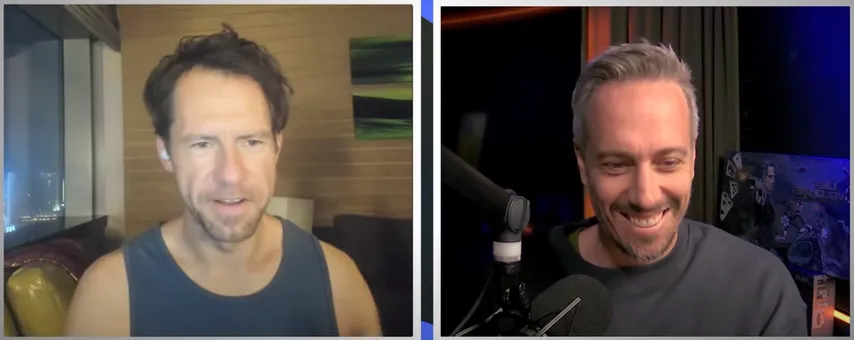
Lex Veldhuis: Well, I just always loved watching streams. One of my biggest vices when I was playing online poker, when I was grinding, was watching game streams on the side. It's one of the things I really had to stop doing. I've been watching streams since like 2008 or 2009 online and I would watch various video games like Starcraft or Dota or something. So I always loved that part. You know how some people say that poker is a hobby that they turned into a job and how cool that is? That's kind of what streaming is also for me.
First, poker was like a thing I wanted to do and I loved so much, and then I went pro at it and succeeded in it. Then streaming was that new thing on the side. So I was pretty much able to fuse the two and build one sort of super hobby that I love doing.
I just always had an interest in it. I thought I could be good at it. I just liked talking and interacting with people all the time, so even on social media or whatever. Then I just went for it. I was sick of online grinding and wanted to do something completely different, so I just went for it in like 2015 or something.
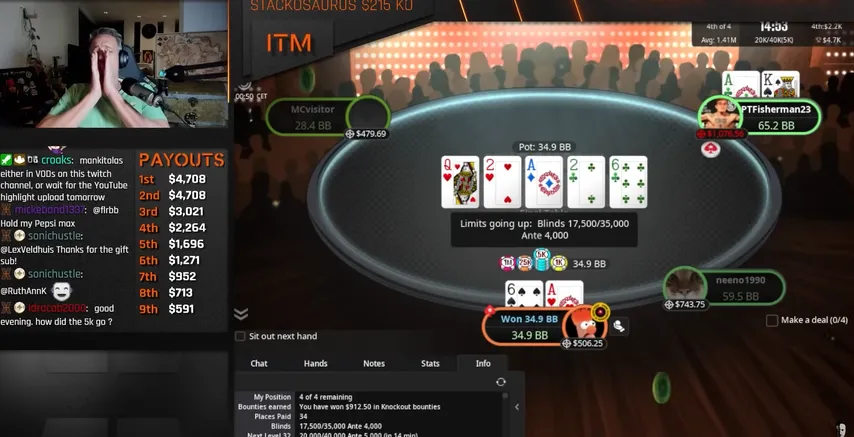
The Rise of Streaming
Daniel Cates: I remember streaming took off... well, I knew that it actually felt like it took off relatively recently, like because of COVID. Or was it always pretty... did it take off a bit before and then COVID just really put it more into the limelight? Do I have that right?
Lex Velduis: Yeah, I think that might be the way you and a lot of other people experienced it. I think that there were people who were home a lot more, maybe they were just browsing a lot. That's when chess growth happened as well, right? That's when chess exploded. I do think there were more eyeballs or different eyeballs on it.
But at the same time, when I was streaming in 2015, there were a lot less categories that people were streaming in. I mean, Fortnite didn't even exist yet. People weren't streaming Minecraft for instance, or all these other things. There weren't any chicks in bikinis, all these things that get a shitload of views wasn't there yet. So people had a lot less things to pick from.
Poker actually got a lot more viewers than it does now. It's kind of funny because to get like 3,000 viewers now is harder than it was to get like 7,000 viewers four or five years ago. And that's because there's more to choose from.
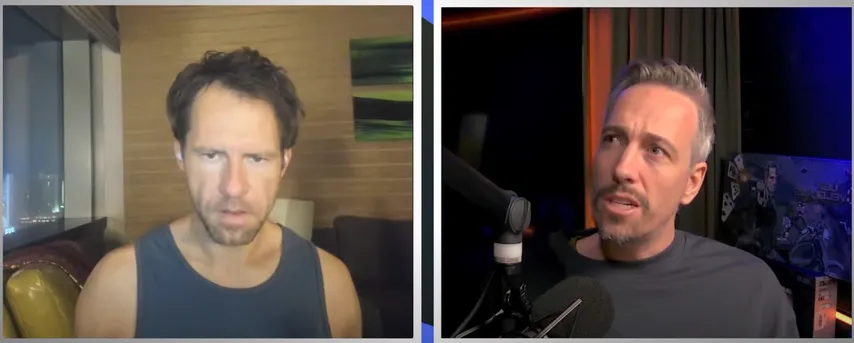
I mean, Jason Sommerville obviously was like the first real big streamer. You had Jamie Staples and then Doug streamed for a bit, and then you had Parker "tonkaaaap". So there were definitely a lot of big streamers. And I mean, at a certain point, a lot of those guys and I were all competing and it was just like everybody would have like 4,000-5,000 viewers. So it was pretty massive already in 2015-2016, I would say.
Daniel: Oh okay, I had no idea. I didn't know it kind of shrank, that sort of surprises me. It seemed like it's really alive today.
– Lex Veldhuis plays as a PokerStars ambassador, after signing a contract way back in 2009. By then his name was already a popular one and he'd made several TV appearances.
Grinding and Sticking to Schedules
Daniel Cates: Were you getting 20,000 views straight away or did it take you a while to build up to that? I mean, it still seems like it's thriving today. Maybe it died and then came back up or...?
Lex Veldhuis: Yeah, I think, well, the thing is, I actually had to plug away very hard at it. So, I was like, I think one of my powers is consistency, that I can grind and I can stick to schedules. It actually works really well for me.
When I first started, I got like 100-150 viewers and I had that for like a couple of months. Then, you know, I started to have some runs, people started noticing my channel, it would go up to a thousand viewers. Then I think like after the first seven, eight months, that's when I started hitting numbers like 3-4,000.
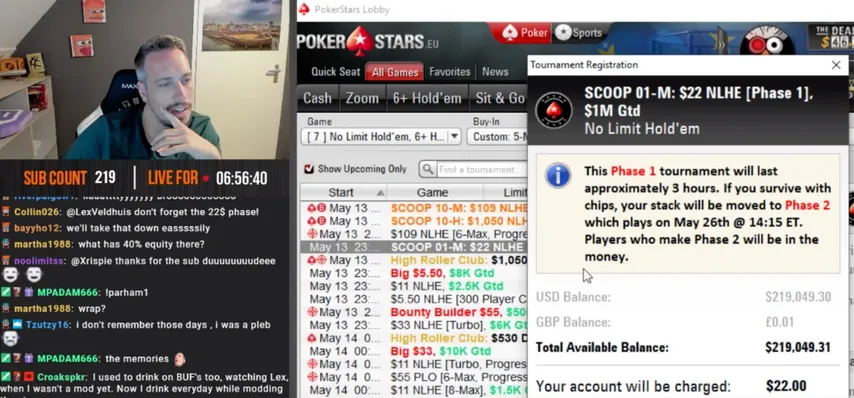
But I was stuck at, stuck, I was at sort of the 200 viewer doorstep for a while actually. Then it just started increasing.
Then I started playing a little bit higher as I got a little bit better in tournaments. Then it sort of built to where I would have like 8-9,000 most days. But I think what's also like, you know, if you think about how it shrank or whatever, I think that people are also spoiled with the amount of content they have now. They can watch Hustler Casino and then you have like all this short-form content where they can get their sort of poker fix really quickly.
So, I think that even though the average viewership has gone down in poker, like when I had my SCOOP win a month ago, I still had 20,000 viewers. So people still know where to find it and people will come watch, but they're just, there's so much good content out there and there's so many things they can watch that they can just cherry-pick now.
Before, it was like, okay, there's no cash game streams – that was non-existent. There were no cash game streams, there were no tournament rooms with streams or doing anything with final tables. So it was just like, okay, if I want to consume poker on the internet, I'm going to have to watch like Jason, Lex, or Tonka or something. That's kind of what the landscape was.
Now it's like, you have f***ing Wolfang Poker with millions of views on shorts, or you can just watch highlights or anything really. So, there's, I mean, there's like, I don't know, 15 podcasts that people can watch. There's a lot more things to fill the day with. I think that it's sort of like, people just know where to find the newest hot s**t and that's fine too. You just got to make a good show and it's a little bit more deep-run-dependant now, but that's okay.
Daniel: Okay, very briefly, what's Wolfang Poker? I don't even know what that is to be honest.
Lex: It's just a guy that makes shorts and reels and he just sort of has a really good way of noticing what the algorithm likes and what people like to see in terms of dopamine hits with sounds and short videos.
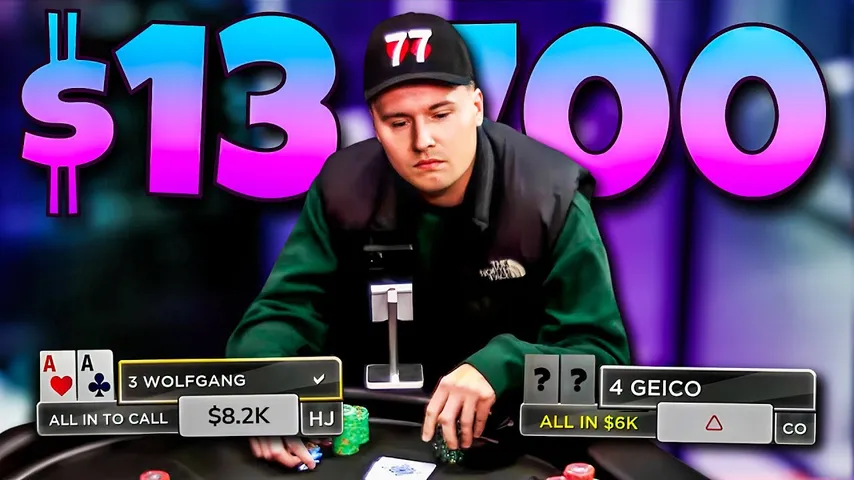
He has a video that went viral with 100 million views, which is weird too because the hand itself is completely non-interesting. He folds with Jacks on the turn or something, something like that. Or he gets a fold with Jacks on the turn. It's like no end to the story, there's no climax, there's no sick hands happening, but for some reason, that video went viral.
Then he just knows how to make people interested in 40-second poker clips that get a million views each. So he was just like, so he sort of exploded in that sense. It's like a completely, it's the complete opposite of the spectrum of what I'm doing. I'm making long-form content, sort of like sit-down living room content, and he is very much specializing in short-form, people scrolling on their phone kind of content.
Daniel: So, okay, yeah, I've never heard of it, whatever.
Authenticity Makes for Streaming Success
Daniel Cates: So tell me, what is it that you do that, how do you capture everyone's attention if they've got all these people to take a look at? It sounds like it's pretty tough.
Lex Veldhuis: I think that one of the things is, I think that I am exactly on stream as I am in real life.
So I think that people, people that are watching, a lot of people see that. When people are trying to act or they're trying to put on emotions because they think it's smart or it's a good decision, or when they're fake angry or when they're trying not to be angry, I think that people really see that.

With me, they know that I don't really have a filter for my emotions. Everything goes through. I'm a pretty emotional person in terms of ups and downs. So I think that people like that. It also makes me sort of unpredictable. So if they know I'm super steady, then it might be boring sometimes. But if I am just in a weird mood, or if I'm manic, or if I'm super high-energy, or if I'm lower energy but I can explode when something happens, even in a smaller tournament, something can just trigger me or something in the chat triggers me, good or bad, you know?
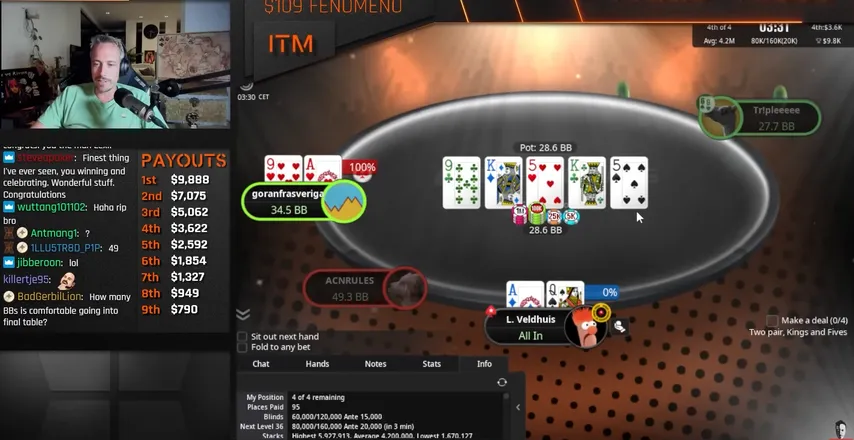
So I think that people like the unpredictability. And I think that, you know, streamers come and go. Most of the names that I've mentioned are not streaming anymore. So I think the fact that I'm still there, that I have the commitment to the platform, and that I've especially when I just started, I would just go five days a week, non-stop, like 45 weeks a year. I would just be there five, six days a week for 8-10 hour streams. I think that that sort of consistency, if I show that to people and to the platform, that people are willing to invest that sort of consistency in me as well, you know?
The Lex vs. ElkY Fight
Daniel Cates: Do you have time to talk about the you-verse-ElkY fight? I thought that'd be a fun topic.
Lex Veldhuis: Yeah, I mean, we just always had a competitive thing going. We did some other bets, we did weight loss bets, and we did some bench press bet and all that sort of stuff. So, we always had this thing and I know ElkY from way before I even played poker. We both played Starcraft.
I think that at some time in our lives, me and ElkY just both had a need to sort of get more healthy or maybe learn martial arts or something. We were just drinking sometime at an EPT in Barcelona. ElkY was a bit drunk and he knocked over some drinks, almost hit some laptops. Some people were sitting high stakes whatever, so people were like, "ElkY, calm the fuck down," you know?
Then a friend of ours said something like, "ElkY, if you don't sit down, we're going to punch you." He's like, "Oh yeah? As if you could win in a fight, because I'm ElkY."
I was like, "Come on." and he was like, "What?" And I was like, "There's no way." He's like, "Oh, do you want to do a fight?" So it literally went like that. I was like, "Okay, let's do it."
So then we just trained for a while. We both tried to do it in Vegas, there was lots of rules and laws and very difficult to do it. Then we kept postponing it and we just upped the bet a few times. We ended up betting €100,000, did a fight. We ended up training like two years for it each and then did the fight. Thankfully, I won.

Daniel: Yeah, I heard that you had a bit more of the athletic talent. I've done a few bets with ElkY myself, I found it to be a very effective way to get into shape.
Lex: What I really liked about that bet is, looking back on it, it's one of the best things I've done in my life. Learn how to fight. It just feels really good and you get to know yourself in a way, in a completely different way. You get some sort of toughness towards yourself, where in practice you also just start believing in yourself more, you know?
During training, when I was so f***ing tired and I finished the hour, or I was just almost fainting, but you get through it. You get through sparring and then all these things where you really, I just really knew my limitations. After two years of training, my trainer knew that I could go to the fullest and that I just knew myself really well, but then that I wasn't a quitter.
There was one time, and he was very harsh on all his students, and he was at me at the start as well. We did a training and I was just, after 40 minutes into the hour, you know, where I had 20 minutes left to go, I would just say, "I'm done. I'm done." And he would just say, "Okay," because he knew that he didn't need to push, that he didn't need to squeeze that last little bit out of me because I knew my limitations that end so well. I was just like, "I almost feel like I'm going to get a heart attack or something." I was like, "I'm done." He's like, "Okay, that's good then for today," you know?
That's so cool where I still have that in certain things, where you just realize that you can go so much deeper than you think you can, and you're so much tougher. When you're in dangerous situations, and you know, I say that I thankfully won the fight, but to be really honest, I think the biggest win when you do a professional fight, and that's why I respect ElkY so much, because I know what he went through.
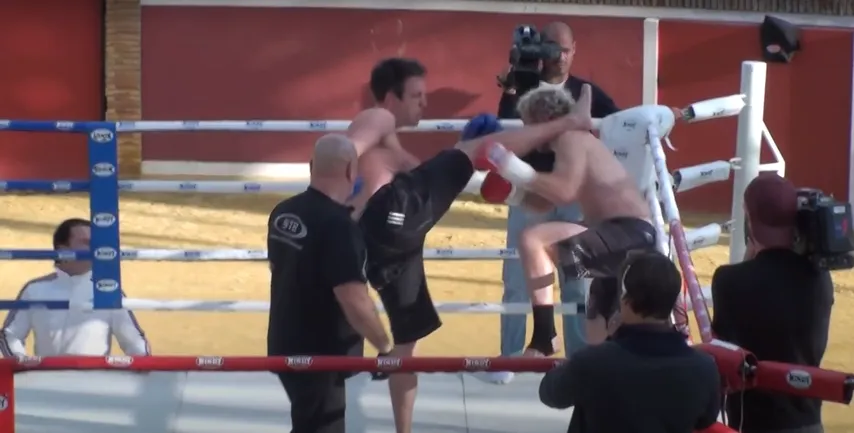
If you want to watch the full fight, Lex has uploaded it to his YouTube channel.
Lex's Pre-Fight Doubts and Respect for ElkY
Lex: It's so funny when I listen to UFC podcasts, I still hear fighters talk about this, where on fight week they want to cancel the fight. They think in their head, "Why am I doing this?" Because it's very unnatural for a human to put themselves in the way of danger. So it's like, "Why am I doing this? Why am I getting myself into a position of danger?"
Then you have all these doubts, and even during the fight, there was like, "Oh, I just heard from ElkY on fight day," and I was like, "I hope he's injured," you know? That's the first reaction. Then my trainer was just really there for me as well. It's very important to have people around you. He's like, "All right, you got to this point, you're ready. Everything in your world is about honor and a gambler's word. This is where you need to show up for yourself because this experience will last with you. You need to be there for yourself," that sort of thing.
Then slowly you get ready to just not be ready, but accept that. That whole process towards the fight, I know that ElkY went through that process mentally, all the questions, all the doubts, and he still went to the ring and fought. Then got knocked down and got up. He could have just wobbled his way out, and maybe he would have, you know?
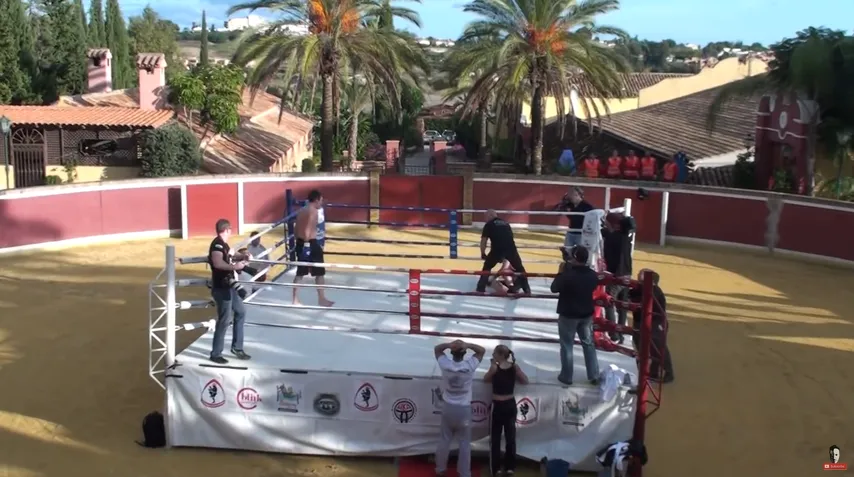
Lex: But like without no choice, but he didn't and he really tried to like continue the fight until the knockout. And then it's just like, I respect that so much because I know what that went through. So many people that haven't fought or are just looking at fighting think that the winner is the one who you respect, but it's actually the win is when you get into the ring. Then some people are going to kick my ass, you know? But the fact that you conquer yourself and you conquer your mind and you just go in there and do it, that is like, that is, man, I would really want, I would really suggest everyone to do some sort of professional fight in your life because that is one of the most enriching experiences I've ever had in my life, mentally.
















